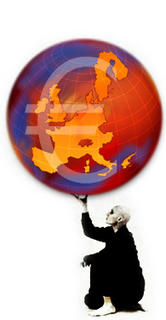
The International Financial Reporting Standards are now the required accounting rules for many businesses around the world. Lessons learned from recent conversions to IFRS extend well beyond the euro zone.
This year represents a major milestone for the International Financial Reporting Standards (IFRS), as many companies around the world have now begun to use this new financial language for their external reporting. In July 2002, the European Union (E.U.) passed a regulation that requires public European companies -- those listed on E.U. stock exchanges -- to comply with IFRS for their group financial statements in 2005. Since then, many countries outside of the European Union have begun working to converge their national accounting standards with IFRS or requiring the adoption of IFRS.
The impact of the international rules is not limited to businesses that have headquarters in Europe. A mandate from the European Commission's Prospectus Regulation and the Transparency Directive will require most non-E.U. issuers of securities that are traded on an E.U.-regulated exchange, or organizations that make a public offer of their securities in Europe, to prepare and present their financial statements on the basis of E.U.-endorsed international accounting standards (IAS) or IFRS as of Jan. 1, 2007.
See full Article.



